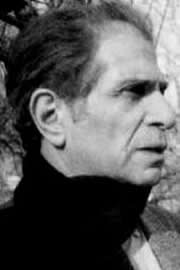
A last word, I hope, on the row about the Daily Mail’s published attack on Ralph Miliband, the late father of Ed Miliband, leader of the Labour party. A previous blog post tells the first half of the story here – there is more to a love of country than loving its institutions, say I.
The editor of the Daily Mail, Paul Dacre, was given space in the Guardian at the weekend to expand on his arguments. It is fair enough to look at the work of Ralph Miliband because his son has often said how influenced he was by his father’s thinking. The attack on the father was really an attack on his son’s party.
Among the claims was that:
Ralph Miliband was, as a Marxist, committed to smashing the institutions that make Britain distinctively British – and, with them, the liberties and democracy those institutions have fostered.
I am going, in finest tabloid newspaper tradition, to selectively quote from that sentence:
the institutions that make Britain distinctively British
There is much more that makes Britain distinctively British than just the institutions. We are shaped, as people and as a society, by so much more: our landscape, our geography, our folksongs, our culture of the amateur, the urge to join a queue, even our tabloid newspapers. It is as much the case that we shape our institutions as that they shape us.
It must take a mindset that venerates the powerful to think that the institutions are what make us what we are.
And when those institutions actively undermine liberties and democracy, rather than protect them, then challenging them is surely an act of love for our country. Did William Wilberforce hate Britain? Did Emmeline Pankhurst? Even the Daily Mail itself has, on occasion and to its great credit, challenged the authority of the police.
A willingness to criticise the institutions is an intrinsic part of what it is to be British, as is a willingness to tolerate criticism with which one disagrees. The Daily Mail has got the cart before the horse, and has got this one wrong.

So what do you think actually makes Britain distinctively British?
Do you believe being British is through being born in Britain? or holding a British passport?
What you seem to be saying is that British-ness seems to evolve from “our landscape, our geography, our folksongs, our culture of the amateur, the urge to join a queue, even our tabloid newspapers.” – so are you implying that being British is about cultural activities and involvement within “British” things, like drinking tea?
How would you define the British identity?